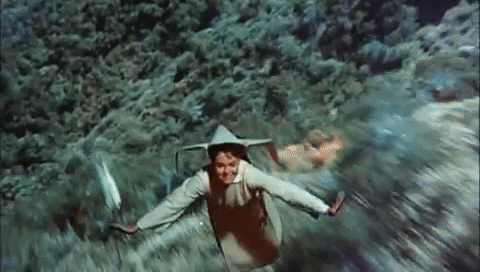My Fellow Shennyer:
These last few weeks I’ve been driven to take selfies amid all the blossoms and trees I pass on my walks through San Francisco:
Spring has sprung, I hope as well where you are. To me the season goes Easter > Semester Ends > Mother’s Day (Spring Break is a big misnomer), which makes this Shenny a celebration of the end of spring and the beginning of Summer, which for me starts the second my grades are posted. Cue Alice Cooper.
We’re in pink tree season, let’s call it. I bought a pair of pink pants when I was in Virginia that’ve gotten me compliments both times I’ve worn them. Shenny’s whole color scheme is shades of pink, if you think of red and magenta as just, like, gluttonous pinks.
Where am I going with this? Everything these days feels like it’s on the cusp of something else, something new happening—but then again that’s always true. That’s exactly how time works: it passes, and it portends. Whatever pink tree season is portending, I’m looking literally forward to it, facing it like the parade you’ve been waiting all morning to pomp on by.
Yours:
Dave
Endorsements
1. Jill Lepore, contributing writer at The New Yorker
Letting, as we all do, my New Yorkers pile up, I love to skip articles. Sometimes, you scan the contents page from six weeks back and realize you can skip the whole issue. What joy! The writer I never skip is Jill Lepore, whose takes as an historian never fail to give me a new context to better understand her topic, like in her recent piece on the rise of data science. Lepore imagines the different forms of knowledge as drawers in a filing cabinet, labeled Mysteries, Facts, Numbers, Data. ‘Mysteries,’ she writes, ‘are things only God knows, like what happens when you’re dead. That’s why they’re in the top drawer, closest to Heaven…. A problem for humanity, though, is that lately people seem to want to tug open only that bottom drawer, “Data”, as if it were the only place you can find any answers, as if only data tells because only data sells.’ (You can read the full analogy of this filing cabinet here.) I love schematics and systems of organization almost as much as I hate the term ‘creative nonfiction’, but I do love what this nonfiction has created in my imagination: not just a tidy metaphor, but a new way to understand where we get our knowledge from, and what use we ought to put it to.
2. FocusWriter
Not a fan of MS Word for drafting, though with all its keyboard shortcuts and überfunctionality, I do love it for revision. (Can’t imagine drafting/revising in Google Docs ever.) But when I’m starting something new, I want a plain open field to put words into. Thank god I found FocusWriter, which hides all menus and functions and lets you customize the space you stare into while writing. Mine’s a black void with wide-ass margins and light-grey text:
FocusWriter also lets you set a custom section divider (mine’s **), and over on the left side of the screen a nav menu will slide open with each section’s preview text, letting you skip around the document—vital for longer pieces. There’s spell check if you need it, and FocusWriter will track your progress if you like to keep stats on hitting your wordcount goals or daily writing streaks. All this comes not without costs: though you can save files in .docx formats, they show up a little wonky in MS Word. And for whatever reason, Joel Gott, the man who coded this freeware, has stopped compiling versions for Mac OS. Get it at the link above, or enjoy regular updates if you’re a Windows/Linux person.
How to Be A Mama’s Boy
Have you ever seen The Flying Nun? I haven’t, but years ago I remember my mom asking me this question. Were we talking about going up the Duquesne Incline? Being on a gondola? A high building? Heights were involved, and Mom said, ‘Did you ever see The Flying Nun?’ I hadn’t. I was familiar, a clip of its opening sequence having passed by my eyes at some point in my TV life.
‘Sally Field, right?’ I said, and mom told me how she loved that show growing up, because she loved to imagine getting to fly over the land, over her town, her school, seeing it all from that high bird’s-eye view.
At the time, I found this charming and comical. Of all the role models from TV, Mom chose Sally Field in a wimple. I also found it sweet, the way we often do when someone we love shares an unspoken desire. The writer in me wants for the rest of this Main Matter to have a field day with such a fantasy of flight, piousness, being literally above it all, but in honor of my mother this Mother’s Day, I’m trying to resist turning her into a character.
But do I want to see her beyond her family role? This seems like another definition of adulthood: the moment you’re able to see your parent as a person in their own right. Maybe I still struggle with it. Here’s a place maybe to share a fantasy of my own: the mother who treats her mothering as a side-gig, a distracting hobby. What does it say about the constancy of love and support I was given that I fantasized, growing up, about having less of it, more neglect, parents like Meg Murry’s who had PhDs plural and were too buried in their own research to notice that old alien ladies were visiting me?
If I still struggle to separate Mom from Pam—her name is Pamela Kay Madden née Myers—it’s because ‘a mother’ forms so much of how Pam self-identifies. Jewelry with our birthstones, pillows and signs around the house with our names on them. When she asks this grown man in his 40s what he’ll do if his flight to some conference is delayed longer than he can make the connection, and this grown man in his 40s grouses about being worried over, here’s what she says: ‘It’s what a mother does.’
Compounding all this is my being the youngest and only boy of her children, which calls to mind another fantasy from my youth: an older brother. Someone to take the heat off.
Pam grew up an only child, in rural Appalachia, the daughter of (a) a man who worked for the natural gas company and (b) a mom. Grandma, I’ve heard, drove a milk truck during the war, but whether she worked after Grampap came home, you’ll have to ask Pam about. Her aunt once told Pam that the reason she didn’t have any brothers and sisters was that Grandma hated the pain of childbirth so much she didn’t want to go through it again.
Mom reports that her childhood was lonely.
Pam dated a guy named Ronnie who could play ‘Wipe Out’ on the drums. Other boys, too, whose stories made less of an impact on me. I recall hearing these stories in the family minivan, 1993, 1994, riding up with Mom to Pennsylvania for another weekend visit to her parents’, just she and I. She let me play my R.E.M. tapes, and I stayed each weekend in her childhood bedroom.
Mom stayed in the basement, which sounds odder than it was. When Pam was a girl, they built a house outside Bentleyville, Pa., a one-story cinderblock thing shoved into the hillside. A bedroom for her parents, a room for her not bigger than a minivan, and one room for every other function in the house: cooking, laundry, sitting. None of the rooms had doors, not even the bathroom, just curtains, and gaps were left along the floor and ceiling to help the heat from the coal furnace get where it was needed.
In time, they build the second story, not out of cinderblock, and moved everything upstairs. In time, Pam graduated from California High School and took secretarial classes in Charleroi. In time, another only-child proposed after 6 months of dating, and then he got her out of there, absconded her to the D.C. suburbs.
We Maddens had a split-level home and enormous Christmases. My parents, as fundraising for the Jaycees, helped sell Christmas trees in a parking lot across from the Pizza Hut, and so downstairs we’d put up a fat Virginia Pine in the corner with lights and Keepsake Ornaments, and upstairs we had a short little scabby thing that didn’t sell at the lot, which we kids would trim with ornaments we cut out of paper or Elmer’sed together at school. We kids made extensive lists of what we wanted Santa to bring, lists Mom has kept in various steno notebooks, and on Christmas morning we’d come downstairs to piles of unwrapped gifts for each of us that Santa had delivered overnight, making our family room look like the prize showcase on Wheel of Fortune. Behind these, pooling out under the tree, were boxes wrapped and ribboned by my mother and grandmothers, everyone in the family giving one or two gifts to everyone else in the family. Unwrapping all the gifts and assembling what we unboxed took hours.
We had these orgiastic Christmas mornings every year, whether or not we could afford it (Mom bought most of our gifts on layaway), and I’d always thought it was normal. Christmas movies encouraged me to think this was normal. Then I began to think about what Christmases were like for my Mom, growing up alone in that house on the hillside, a tree made of cold aluminum, and suddenly I comprehended that gift-giving for us wasn’t about celebrating Christmas so much as celebrating Pam’s escape from poverty and isolation. She lived in the suburbs now. She had children plural, a husband with security clearances, and big-ass trees she got for free.
Pam has no grandchildren, goes the O. Henry twist to this tale. How that’s come to be is a story for another time. We adult kids without kids of our own, maybe even some of you, have wrangled in our own ways with the possibility of our parents’ disappointment. (Is your mom Catholic? As a reparative Mother’s Day gift, consider a Saint Monica pendant, patron saint of disappointing children.1)
My wrangling has taken a more patrimonial bent, in that my children would have Carried On The Family Name. Dad’s thoughts on no-grandkids are unstated. Mom, it’s clear, wanted a big family, something I can’t (or just won’t) give her. So I give what I have. I title the opening piece in my story collection after her. I write things like this Main Matter, because I know how hurt she feels when I disappear her for story-economy reasons from other things I’ve written.
Mom and I are close. She reads every Shenny, everything I write, the day it comes out. I can tell her anything except for pretty much everything that’ll be in the memoir. (God help me.) Am I, in the end, a mama’s boy? I don’t know whether I’ve shown enough devotion. Two things I do know are true: I call her far less often than she’d like, and I love her far more than she could know. Happy Mother’s Day, Mom.
This week’s natatorium is the airy and beautiful Kildeskovshallen in Genofte, Denmark, with a bonus shot of its Springbassin, where you can throw yourself into the water at varying levels of courage:
Her son, btw, was St. Augustine.










always love Shenny
this one left me sobbing
Happy Mother’s Day to Pam🌷